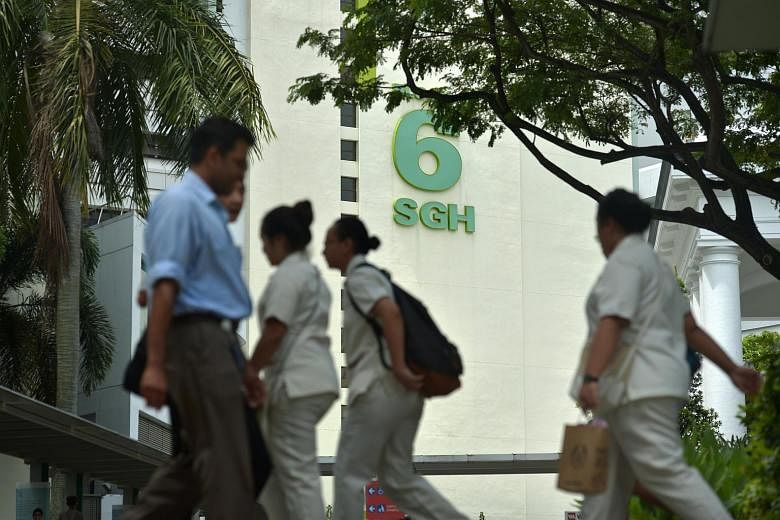While there are solid reporting procedures in place for well-known infectious diseases and epidemics, these were not effective in catching an "unusual and unfamiliar" outbreak like the hepatitis C virus (HCV) infections that occurred earlier this year at the Singapore General Hospital (SGH), an independent review committee found.
The national surveillance system was built to pick up communicable diseases in the community and infections contracted by patients in hospital during treatment for other medical or surgical conditions, noted the report released yesterday.
But HCV is not detected easily, because of characteristics such as its lack of obvious symptoms. Unlike, say, airborne diseases or those spread by close contact, it is harder to establish how it was transmitted, noted the committee.
"Some characteristics of HCV make it difficult to be detected by the current system. In addition, not all cases of HCV infections were reported by the doctors and laboratories," said the report.
Nonetheless, the committee found that there was no evidence of deliberate delays by SGH or Ministry of Health (MOH) staff in reporting the outbreak or informing the Minister for Health.
-
Improving responses and procedures
-
Here are the recommendations by the Independent Review Committee to enhance Singapore's response to outbreak detection and reporting protocol, among other things.
1 The national surveillance system for acute hepatitis C virus infections should be fine-tuned, adapting from international best practices. This should pick up infections occurring in both the hospitals and community.
2 Early incident reporting procedures within the hospital, public healthcare cluster, and to the Ministry of Health (MOH) should be established. Guidelines could include instances where the hospital needs to identify exposed patients who could have caught infections.
3 Hospitals should develop clear structures and frameworks to investigate and manage infections patients get while in hospital. They should enhance capabilities if required, for instance, by hiring epidemiologists and infection control practitioners.
4 MOHshould have an overall plan to strengthen capabilities for investigating outbreaks nationally.
5 Reporting procedures withinMOHneed to be reviewed, so the senior management can be made aware of risks in a more timely manner.
6 MOHshould set up a team to adopt a broader set of responsibilities and functions across institutions and settings. The team should have the capabilities to investigate outbreaks, from knowing when there is one to being able to mobilise the operational expertise to deal with it.
Mr Gan Kim Yong was notified only in mid-September, nearly four months after the initial cluster of four cases was discovered.
"There's no evidence to suggest that the escalation of the matter from DMS (director of medical services) to minister was deliberately delayed," said chairman Leo Yee Sin in a briefing yesterday.
What the committee did find, however, was that reporting processes and clarity of roles were lacking both at MOH and SGH.
Professor Leo said: "MOH CQPT (Clinical Quality, Performance & Technology Division) oversees the hospital-associated indicators but the division was not set up specifically to look into outbreak investigation."
As for the roles and responsibilities within the hospital's own senior management, the panel felt it was not clear what the roles were and whose responsibility it was in the event of an outbreak.
Yesterday, Mr Gan said MOH would set up a task force, led by Minister of State for Health Chee Hong Tat, to enhance the processes for handling infectious disease outbreaks. The task force will enhance the surveillance, detection and response to such outbreaks.
Tan Weizhen
INTERACTIVE GRAPHIC:
How the hep C outbreak was escalated to the key parties. http://str.sg/ZzJ5

